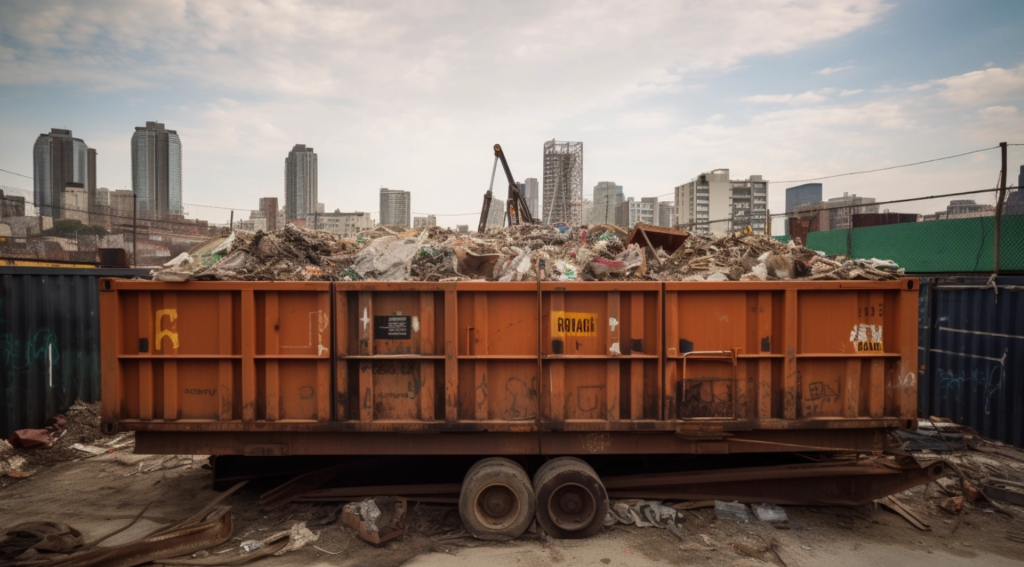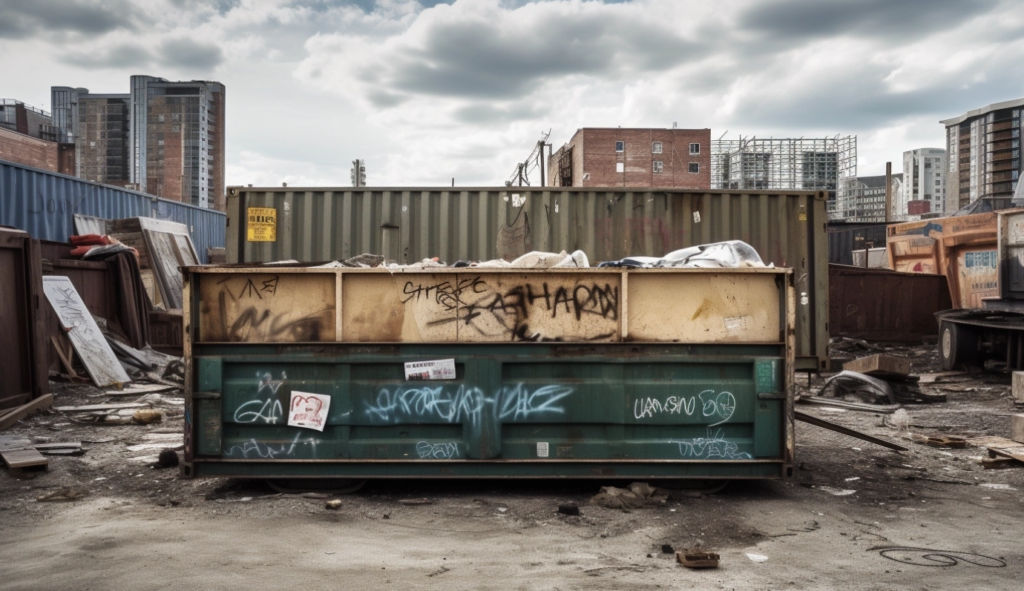Every household or business entity produces waste. Now that our environment experiences a lot of harmful effects from waste negligence, many states have established waste disposal regulations for dumpsters. Governing bodies expect everyone to comply with these regulations to protect the planet’s environment and human health.
Sometimes, a business owner or homeowner may need a dumpster to collect waste from their property or project. Depending on the size of a dumpster, a hauling or dumpster rental company can collect the waste.
However, not all trash can go to dumpsters. Local landfills and other facilities may reject them to comply with waste disposal regulations.
Overview of Waste Disposal Regulations
Learning about waste disposal comes from schools. They teach children early because knowing how to dispose of trash properly can significantly help the community. Dumping waste illegally into streams or burying it may pose hazardous health risks.
Waste disposal regulations include identification, segregation, and proper disposal. There are types of waste that you should not throw out in dumpsters. Identifying the allowable trash for the dumpster can be confusing, so checking with your local government is essential to avoid paying hefty fines.
These regulations aim to reduce the waste that goes to landfills. It would be best if you reused or recycled materials. The more trash that ends up in landfills, the quicker it gets filled, which is more harmful to the environment.
Proper waste disposal can improve human health since water sources and the environment get cleaner. Due to this, your community can be disease-free, leading to a better quality of life. No one can get rid of producing waste. But following waste disposal regulations is a big step in practicing a sustainable approach.
Types of Waste and Disposal Methods
Unwanted items are considered waste. These may come from households, schools, factories, farms, and even our food. There are different types of waste, and each has a proper way of disposal. The governing body should haul these materials. However, it is more convenient for homeowners and business owners to hire a dumpster rental or hauling company to transport the waste.
Solid Waste
Solid waste is the largest contributor to landfills. Most of these come from households, which include plastics, paper, glass, and metals. This waste is non-biodegradable and should be disposed of properly.
Some of these may also be considered hazardous, especially appliances that contain dangerous materials, such as asbestos, mercury, and lead. Other examples of solid waste are compostable food waste and yard trimmings, wood, and furniture.
Proper disposal of solid waste starts with segregating biodegradable from non-biodegradable items. You should not dispose of biodegradable waste anywhere since microorganisms breed on this type of waste. Usually, property owners place these in green bins for collection. You may also compost them if you have a compost pit that the municipality has approved.
One of the disposal methods used by facilities is incineration. This method helps reduce the amount of waste that goes to landfills. On the other hand, landfills dispose of solid wastes using mechanical equipment to cover and compress them in a deep excavation.
Reach out for a FREE Audit!
No Strings Attached!
Liquid Waste
Liquid waste includes grease, oil, and dirty water. Like solid waste, it should be disposed of properly to prevent water source contamination and other forms of pollution. It can destroy the marine ecosystem or seep into the soil where we plant our vegetables. Improper liquid waste disposal may lead to several severe illnesses and poisonings.
There are different ways to dispose of liquid waste. Facilities usually do these processes since they may include treating machines. Liquid waste may undergo dewatering, sedimentation, incineration, and solidification.
As for liquid household waste like dirty water, property owners may dispose of it as dirty water or call a waste management company to collect it.

Industrial and Hazardous Waste
Manufacturing waste is one of the biggest problems for companies. It may include hazardous chemicals, scrap metal, plastics, and other solid waste. What’s more problematic is that industrial waste does not come in bins. It produces a massive amount of waste, which comes to landfills in bulk. If not disposed of properly, it may release harmful chemicals into the air that can seriously threaten human health.
Accredited disposal facilities treat hazardous chemicals to dispose of. They do it by chemical, thermal, or physical methods. Facilities often incinerate hazardous waste since this process can also destroy organic waste.
Recyclables
Recyclables are solid waste we often generate from demolition, construction, and other household materials. Usually, these are tin cans, metals, glass, concrete, and treated wood. This category includes damaged appliances, as their parts are mostly metal, which we can recycle.
Hauling and dumpster rental companies collect recyclables and bring them to scrap yards. These facilities compress the metal waste and treat it for foundries to use as a raw material for metalworking. Concrete is also recyclable when ground. Construction companies may use recycled concrete for building cement, which is more cost-effective and environmentally friendly.
Proper Dumpster Placement and Maintenance
Dumpsters may ruin your property’s aesthetics, but these containers help prevent the spread of disease from your area. These containers are the favorite breeding ground of pests, and if you do not place and store them in the proper location, they may creep out and come to your property.
You can place movable bins and small dumpsters near your property and move them to the curb during collection time. On the other hand, larger dumpsters like the ones used in demolition and construction projects should be at least 50 feet away. Ensure that there is ample space where the truck can haul the dumpster.
To keep your dumpsters free from pests, keep the lids closed, especially for biodegradable waste. Refrain from filling the containers since it may attract pests, and an unpleasant smell can quickly come out. Debris can easily fall out, which will only make the waste smear on the property.
Recycling and composting
Both disposal processes are environmentally friendly. Non-biodegradable waste uses the recycling method, while composting is for organic materials.
Recycling may require special equipment to treat and process recyclable materials and have them ready for reuse. This process can help reduce waste in landfills by 35%. Additionally, recycling can reduce the mining of natural resources and help the environment.
Composting is a natural way of disposing of biodegradable waste. Disposing of organic trash in a landfill may release a potent greenhouse gas that is highly detrimental to the environment. Compost materials are also an option for fertilizers. Instead of using chemical fertilizers, you can use egg shells or other organic waste for your plants.
Conclusion
Waste disposal regulations for dumpsters are essential to keeping the environment healthy. You can benefit from proper waste disposal–from reducing health risks to saving money by repurposing or reusing solid waste. Suppose you are unsure of the appropriate removal of certain items. In that case, you can reach the local waste management office or contact a hauling or dumpster rental company to take care of your waste.
Reach out for a FREE Audit!
No Strings Attached!

